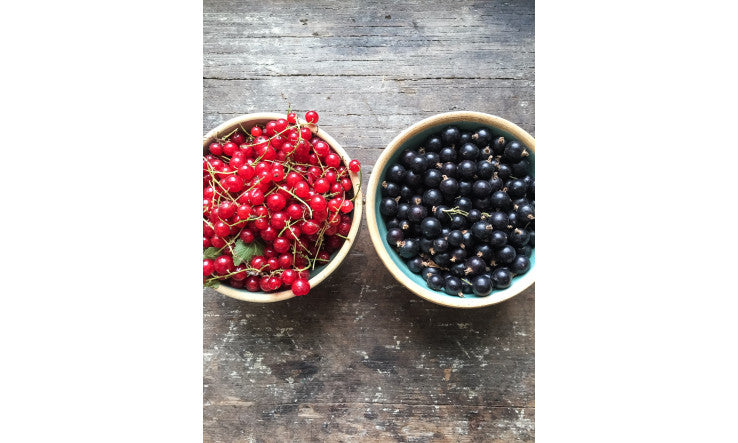Total health
IS HEALTH ON YOUR PLATE? ©2016 Danièle Starenkyj www.publicationsorion.com
Last month, we cited a Canadian dermatological organization's 2008 assertion that "what's good for the heart is also good for the skin." What's good for the heart? A diet low in total fat, and particularly low in animal fat. And it's also said to be protective against skin cancer. 1 (See the article "The Evil Sun?")
In 2015, the Lancet Psychiatry published an article 2 stating that "the evidence demonstrating the relationship between diet quality (as well as potential nutritional deficiencies) and mental health is steadily increasing." A medical review 3 reporting this position was titled: "Is mental health on the plate?" And it began with this further question: "Is diet as important in psychiatry as it is in cardiology?" According to the authors and articles cited, the answer is yes, particularly in cases of depression and even autism.
On July 25, 2016, news broke of an international conference on Alzheimer's in Toronto. One study in particular caught the attention of the 5,000 scientists in attendance. It linked junk food to the progression of the disease—junk food being defined as a diet high in red and processed meats, fat, sugar, and processed foods. The antidote presented was a highly plant-based diet consisting primarily of unrefined grains, fruits, vegetables, and legumes, and low in animal products and by-products; but also accompanied by a lifestyle characterized by "high education, a complex occupation before retirement, and strong social relationships." According to Dr. Matthew Parrott of Baycrest Health Sciences Centre in Toronto—one of the study's authors—this lifestyle not only prevents or delays Alzheimer's, but it even has a protective effect against the negative impact of junk food. Simply put, living the eight laws of health 5 – do you know them? – gives you every chance of maintaining a healthy mind in a healthy body for a long time.
In 1960, the food basket consisted of raw products: bread, vegetables, legumes, and unprocessed meat. Today, it mainly consists of prepared meals loaded with fat, sugar, and preservatives, and many more sugary and dairy products in all their forms.
This profound change in Western eating habits is now at the forefront of our non-communicable diseases – cancers, cardiovascular diseases, type 2 diabetes – but also, and this is a more recent acceptance, of so-called mental illnesses and dementias linked to the loss of cognitive functions such as Alzheimer's.
It's summer. Let's take advantage of the bounty of the harvest. Produce grown from the ground and prepared at home for delicious family meals is a wonderful and enjoyable investment in total health.
1. SkinCareGuide.ca May TIPS 2008.
2. Sarris J. et al., Nutritional medicine as mainstream in psychiatry, Lancet Psychiatry 2 (3), 271-274, 2015.
3. Le Médecin du Québec.org / “Nutrition and psychiatry” file, August 25, 2015.
4. Alzheimer's: between cure and prevention / HERE. Radio-Canada.ca, July 25, 2016.
5. Starenkyj D., Total Health , Orion, 2009.
Danièle Starenkyj©2016 www.publicationsorion.com


































































Leave a comment